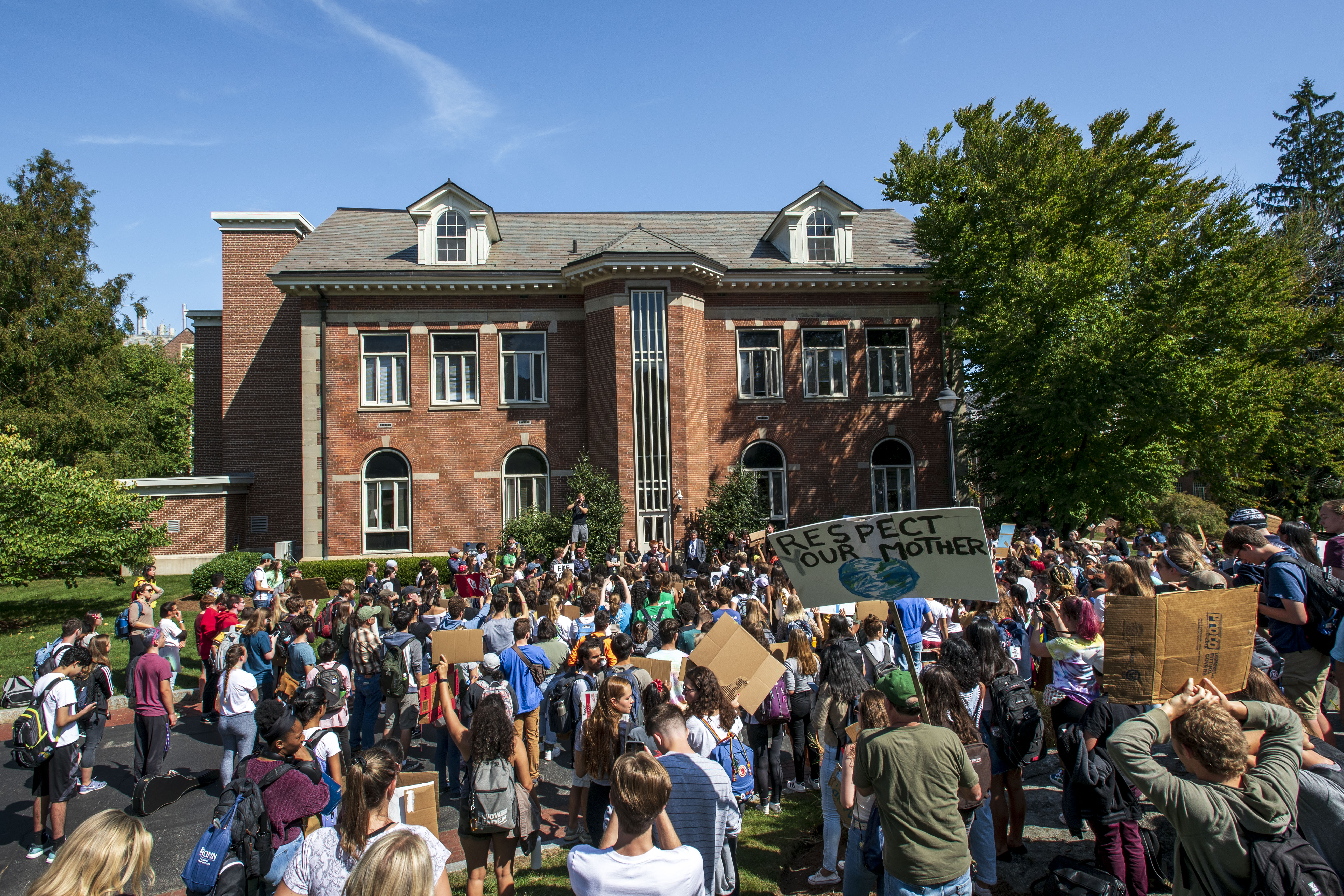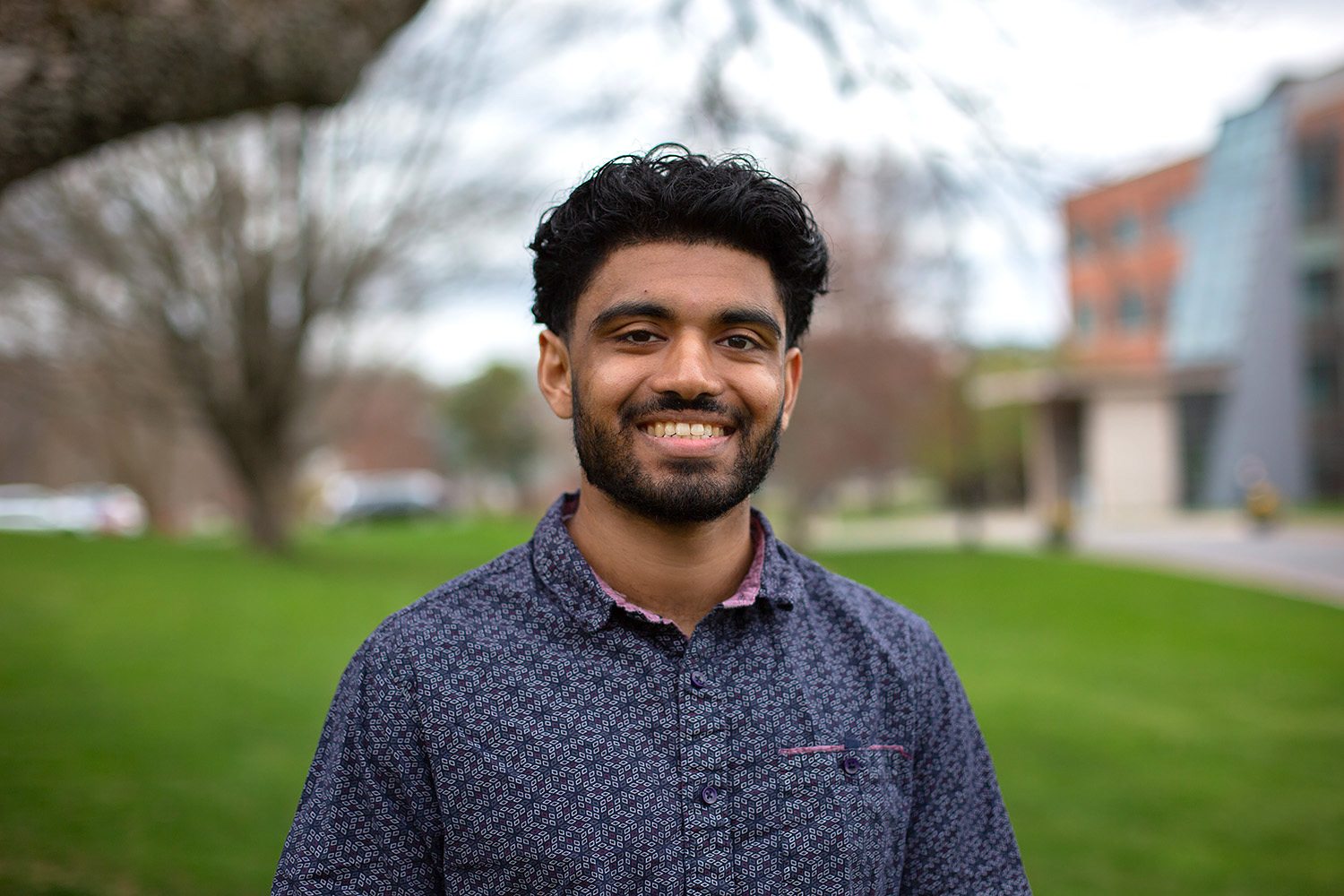Earlier this year, a new course called The Human Epoch: Living in the Anthropocene (GSCI 1000E) launched at UConn, with the goal of empowering students in the face of the existential crisis presented by climate change.
Students were presented with the facts — the climate crisis is happening, it is serious, and humans have caused it — and then presented with the question: is it possible to face the future with hope? The response from students is an overwhelming “yes.”
Assurance from the Past
The main goals of the course were to broaden and clarify what is meant by the term “environment,” says geoscience professor Robert Thorson. “Through the course we put ‘environment’ in the context of earth-system history.”
Students studied the issues underlying climate change and the state of the world through a different lens – the fact that Earth is ever-evolving and extremely resilient.
“Based on what I read and what kind of literature is selling, there is considerable angst and anxiety,” says Thorson. “The course’s role of ameliorating eco-anxiety is a side benefit.”
Hayley Lambert ’22 (BUS), one of the students who took the course, now has context to better understand our present moment, she says.
“We looked at our past, our present, and possible fates of the future. Earth has changed drastically from what it used to be and we have changed alongside it. What is comforting to know is that the Earth will be relatively fine as long as it’s viewed through the context of whatever the current reality is. I know everything will be okay as long as I don’t get too invested in what ‘okay’ looks like right now. The Earth will be fine and so will we, but our normal now is not going to be normal in the future,” she says.
Anh-Dzuyen Le ’23 (BUS), another student in the class, agrees: “This course has definitely changed my outlook on the state of the world. Earth will be okay. It is with the amount of effort people are putting in now that helps the planet survive. What is often overlooked as well is how strong the world actually is by withstanding many fires, natural disasters, and human land conversions in the past. Because the Earth has gone through so much without the awareness from its inhabitants, I think it can continue to thrive now as more people are taking care of it.”
A broader understanding of the Earth’s geologic patterns is one of the main benefits of the class for Caroline Brown ’23 (BUS).
“This helps me distinguish between genuine and disingenuous claims about climate change,” she says. “This course also opened my eyes to the immense disruption of geologic patterns humans alone have had on the planet since the 1950s. Every day, I notice more and more examples of the power struggle between humans and the planet.”
Connor Blodgett ’21 (BUS) echoes the sentiment.
“I know for our foreseeable future, we will be okay. With climate change and pollution being such a frequently discussed topic in today’s times, you wonder if we actually face sudden doom due to our poor treatment of the planet. Professor Thorson gave us hope. I feel that at this point, we need to start making some changes as a species in order to improve the well-being of other species that reside on the planet. With that said, we will be okay, in the end.”
Building Awareness
The material covered in the course had an immediate effect on how students understand the world, they say.
“I appreciate what is around me,” says Blodgett, “When I pass buildings or parks, I often think to myself now, ‘How was this made?’ or ‘What did this land look like before it was altered?’ It’s something I think we should all do more often.”
Le agrees: “The main aspect I have changed in my life after taking this course is simply being more aware. I am now noticing more about our world and how I individually influence it. I get to choose to take time to understand where things came from and how, if in any way, I can do a better job as a human to be kind to my surroundings.”
The course has enabled Brown to apply its lesson to other areas of life, like choosing where to buy clothes in a way that avoids the environmental hazards of so-called ‘fast fashion.’
“I have become more aware of my carbon footprint,” she says.
Lasting Impressions in Changing Times
Discussing topics like climate change, the Anthropocene, and the future for the human species can leave students with a lot of implications to think over.
“My biggest takeaways from this course are that we changed the planet, it continues to change, and every little thing affects another,” Le says.
Lambert left the class with an appreciation for the unknown consequences of such drastic change: “Uncertainty, to an extent, is necessary to explore possibilities. We have come from a past that looks nothing like the present and there will be a future that also looks nothing like the present.”
Deborah Warren ’23 (CLAS) says in a time of such uncertainty, made more acute by the COVID-19 pandemic, it is easy to feel overwhelmed and begin panicking. “Oftentimes, issues become more chaotic because of this panicking. Instead of focusing on all the bad to come, think about what you can do to help the situation.”
The summer and fall sessions for The Human Epoch: Living in the Anthropocene (GSCI 1000E) are enrolling now. If you are interested in enrolling, please visit the online course catalog to register.



